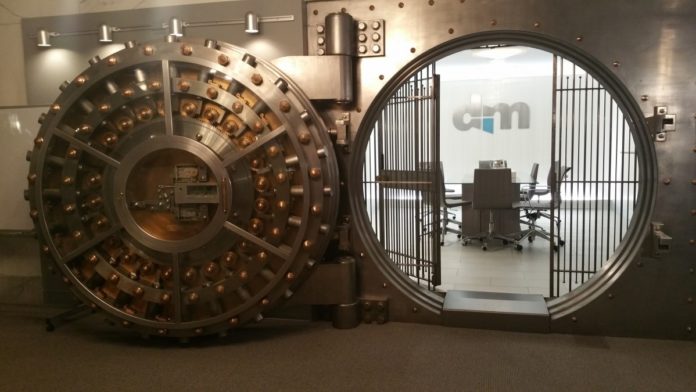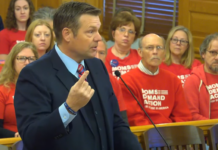Kansas bankers are rallying opposition to a Biden administration proposal to monitor aggregate transactions flowing in and out of personal and business bank accounts to help collect underreported income.
The Kansas Bankers Association has been lobbying the state’s congressional delegation to oppose the plan, which would monitor accounts whose value or total transactions exceed $600.
The bankers and other groups argue that the proposal gives the government the power to snoop into the financial transasctions of the American public while adding burdensome regulations to financial institutions.
Supporters say the proposal would give the government the ability to catch wealthy tax cheats who aren’t carrying their fair share of the tax load.
“What we’ve really done is unprecedented,” said Doug Wareham, president and CEO of the Kansas Bankers Association.

“I’ve been here at the KBA for 17 years, and this is the first time we have openly and aggressively encouraged our banks to notify their customers of this proposed rule,” Wareham said in an interview.
“We believe what is at stake is customer privacy, and we just think this is a huge overreach,” he said.
The association has been joined in its efforts by the state’s Republican congressional delegation as well as the candidates running for state treasurer, including Democratic incumbent Lynn Rogers.
First unveiled in May, the proposal would require financial institutions to annually report gross inflows and outflows from all business and personal accounts if they total at least $600 a year, or if an account has a fair market value of at least $600.
The plan would help cover the cost of the $3.5 trillion reconciliation bill with the estimated $460 billion in revenue it would generate over 10 years.
The idea of the proposal is to reduce the gap between what people pay in taxes and what they owe, a difference estimated to be about $600 billion a year.
The Treasury Department says that an understaffed Internal Revenue Service, coupled with old technology, is unable to collect 15% of taxes that are owed.
The agency cited academic research that showed more than $160 billion was lost annually from taxes that top 1% of earners didn’t pay.

“For the IRS to appropriately enforce the tax laws against high earners and large corporations, it needs funding to hire and train revenue agents who can decipher their thousands of pages of sophisticated tax filings,” Natasha Sarin, deputy assistant secretary for economic policy with the Treasury Department, wrote earlier this month.
“It also needs access to information about opaque income streams — like proprietorship and partnership income — that accrue disproportionately to high-earners.”
The Treasury Department stresses that the proposal does not mandate reporting of individual transactions to the IRS.
The president’s proposal, the agency says, requires banks to report only “high-level” information on account inflows and outflows into bank accounts.
The government, as an example, is looking for disparities between reported income and the amount of money flowing in and out of an account.
For instance, there could be an occasion where a taxpayer might report $10,000 in income but have more than $1 million of inflows and outflows to their account.
The information would help the IRS flag high-income earners who are not reporting all of their income and potentially evading their tax obligations.
The question is how far should the government go to collect the information it says it needs to ensure that unpaid taxes are collected.
U.S. Sens. Jerry Moran and Roger Marshall are cosponsoring legislation that would prevent the reporting requirement from being implemented if it ultimately became law.
“This legislation puts important guardrails in place to protect against this invasive proposal by Democrats that would infringe on taxpayer privacy and damage local lenders’ capacity to serve their customers,” Moran said in a statement.
Marshall added, “Requiring financial institutions to report any transaction over $600 to the IRS is incredibly intrusive, and violates the rights and privacy of the American taxpayer.”
A spokeswoman for Democratic Congresswoman Sharice Davids said she is still looking into the bill.
Republican U.S. Rep. Jake LaTurner joined the state’s U.S. senators in denouncing the Biden administration proposal.
“These new burdensome regulations will not close the ‘tax gap’ but instead put more pressure on small and local banks to meet the increased reporting and administrative costs,” LaTurner said in a statement.
“Chalk this up as another authoritarian power grab by President Biden that violates the privacy of every single American,” he said.
U.S. Rep. Ron Estes also shared a similar view.
“Prying open the bank statements and Venmo accounts of Kansas families and small businesses is another example of the gross overreach of the Biden administration,” Estes said in a statement.
“It’s an invasion of privacy and will be a reporting nightmare for small local banks.”
Democrats are already considering a plan to raise the reporting requirement to $10,000, much higher than the $600 the Biden administration proposed.
About two weeks ago, a group of 20 Republican state treasurers signed a letter sent to the president and Treasury Secretary Janet Yellen opposing the reporting requirement.
The group estimated that it would affect more than 100 million Americans who currently have a financial account.
They noted that last year alone, more than 127 million Americans qualified for federal COVID-19 relief money that deposited more than $600 into their accounts.
“We do not believe the federal government should give the IRS the unprecedented and
unconstitutional power to peer into law abiding citizens’ private financial accounts,” the treasurers wrote in their letter.
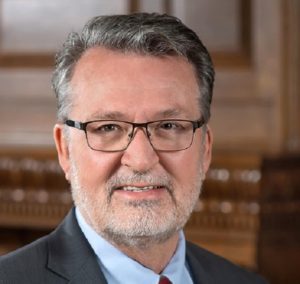
“This would be one of the largest infringements of data privacy in our nation’s history and is a direct assault on the financial disclosures of all Americans.”
Kansas Treasurer Rogers, who has 40 years of banking experience, opposes the Biden administration’s proposal.
“As I understand it, the IRS proposal violates privacy and would provide information unrelated to taxes to a government agency,” he said in a statement.
“It would also be a new, expensive regulatory burden that would make it harder and more expensive for financial institutions, particularly small rural banks and credit unions, to serve smaller accounts,” he said.
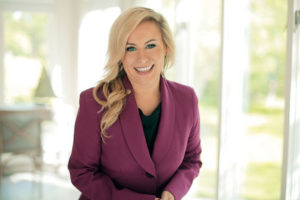
Sara Hart Weir, a Republican candidate for treasurer, posted a statement about the transaction requirement last week.
She said it would “negatively impact millions of hardworking, law abiding Kansans and discourage unbanked individuals from opening bank accounts…”
She said it would put “financial data privacy at risk” and give “the already too powerful IRS the unprecedented and unconstitutional power to monitor private financial accounts.”
Republican state Sen. Caryn Tyson, also running for treasurer, blasted the proposed mandate on Facebook last week.
“Biden is attempting to steal your privacy by tracking every bank and financial institution in the country to report YOUR deposits and withdrawals of accounts with a balance of $600 or more, on all accounts, including bank loans and investments,” Tyson wrote.
“Biden is proposing the intrusive overreach of the federal government as a fishing expedition to find tax evasion,” she wrote.

Republican treasurer candidate Michael Austin also joined in the opposition to the proposal.
“The Biden Administration’s attempt to seize your family’s financial records is not only a violation of Americans’ privacy and civil liberties, but it’s also a new stealth tax on families and businesses to fund Biden’s record deficit spending,” Austin said.
“These are the actions of a tyrannical leader, and as your next State Treasurer, I will stand firm for your freedoms,” he said.
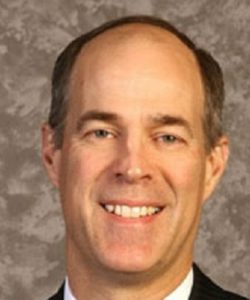
Republican state Rep. Steven Johnson was opposed to the requirement, as well.
“Each time we add more reporting requirements, anything that is more oversight from government, I want to really make sure that we’re adding value to the public as a whole,” he said.
“It does not appear that this does.”






